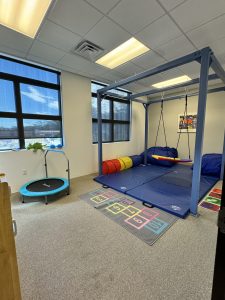What is Solution-Focused Brief Therapy
Solution-Focused Brief Therapy (SFBT) is a type of psychotherapy that prioritizes finding solutions to current problems rather than focusing on the problem itself or its underlying causes. Developed by Steve de Shazer and Insoo Kim Berg in the 1980s, this approach is grounded in the belief that clients have the inherent resources and strengths needed to overcome their challenges.
SFBT is a modern approach designed to bring about meaningful change in a relatively short period. Unlike traditional therapy models that delve deeply into problems and their origins, SFBT is centered on solutions and future possibilities.
9 Benefits of Solution-Focused Brief Therapy
1. Focus on Solutions, Not Problems
SFBT emphasizes identifying and developing solutions to current issues rather than analyzing the problem’s origins. This approach encourages clients to envision a future in which the problem is resolved and explore practical steps to achieve that vision.
2. Strengths and Resources
Rather than focusing on deficits, SFBT highlights clients’ strengths, resources, and past successes. By recognizing and utilizing these assets, clients can build upon what already works for them.
3. Goal-Oriented Approach
The clients’ clear, achievable goals specific, and guide therapy. These goals provide direction and help maintain focus throughout the therapeutic process. The emphasis is on achieving tangible outcomes and making measurable progress.
4. Collaborative Process
The therapeutic relationship in SFBT is highly collaborative. The therapist and client work together as partners to define goals, explore solutions, and develop strategies. The therapist acts as a facilitator, guiding the client rather than dictating solutions.
5. Brief and Time-Limited
SFBT is designed to be brief and efficient. The overall SFBT therapy process often spans only a few sessions to several months. This time-limited approach helps maintain focus, momentum, and efficiency in addressing the client’s concerns.
6. Exception Finding
This principle involves identifying times when the client’s problem was less severe or absent. By understanding and analyzing these exceptions, clients can discover strategies that worked in the past and apply them to their current situation.
7. Scaling Questions
Scaling questions help clients assess their progress and evaluate the severity of their issues or the effectiveness of solutions. Clients rate their experiences on a scale (e.g., 1 to 10), which improvements and adjustments help them track strategies as needed.
8. Positive Reinforcement
SFBT focuses on acknowledging and celebrating small successes and progress. This positive reinforcement helps boost clients’ confidence and motivation, encouraging them to continue pursuing their goals and implementing solutions.
9. Future-Oriented
The therapy emphasizes building a vision of the future in which the problem is resolved. Clients are encouraged to imagine how their lives will be different once their goals are achieved and to work towards making that vision a reality.
By adhering to these core principles, Solution-Focused Brief Therapy helps clients shift from problem-saturated thinking to a focus on solutions, fostering a more positive and action-oriented approach to personal growth and problem-solving.
Who Would Benefit from Solution-Focused Brief Therapy?
-
Individuals Seeking Short-Term Therapy:
-
Time Constraints: Those who need a brief intervention due to time constraints or personal preferences will find SFBT’s short-term nature appealing.
-
Immediate Needs: Individuals who want quick solutions to specific problems or challenges benefit from the efficiency of SFBT.
-
-
Clients with Specific, Well-Defined Issues:
-
Targeted Concerns: SFBT is particularly effective for clients dealing with specific, clearly defined issues such as anxiety, stress, relationship problems, or life transitions.
-
Practical Goals: SFBT’s approach will benefit those who can articulate their goals and work towards actionable solutions.
-
-
People Looking for Empowerment and Positive Change:
-
Strengths and Resources: SFBT will benefit clients who prefer a therapy approach that emphasizes their strengths and resources rather than delving into past problems.
-
Motivation and Self-Efficacy: Individuals who are motivated and ready to take actionable steps towards change are well-suited to the solution-focused methodology.
-
-
Individuals Open to a Collaborative Approach:
-
Partnership: Clients who are comfortable with a collaborative therapeutic relationship and are open to actively participating in setting and achieving goals will thrive in SFBT.
-
Interactive Process: Those who appreciate a more interactive and client-driven approach to therapy will find SFBT’s methods engaging and effective.
-
-
Clients Seeking a Positive Therapeutic Experience:
-
Optimism and Hope: Individuals who respond well to a positive, forward-looking therapeutic approach will appreciate SFBT’s emphasis on envisioning a better future and celebrating small successes.
-













